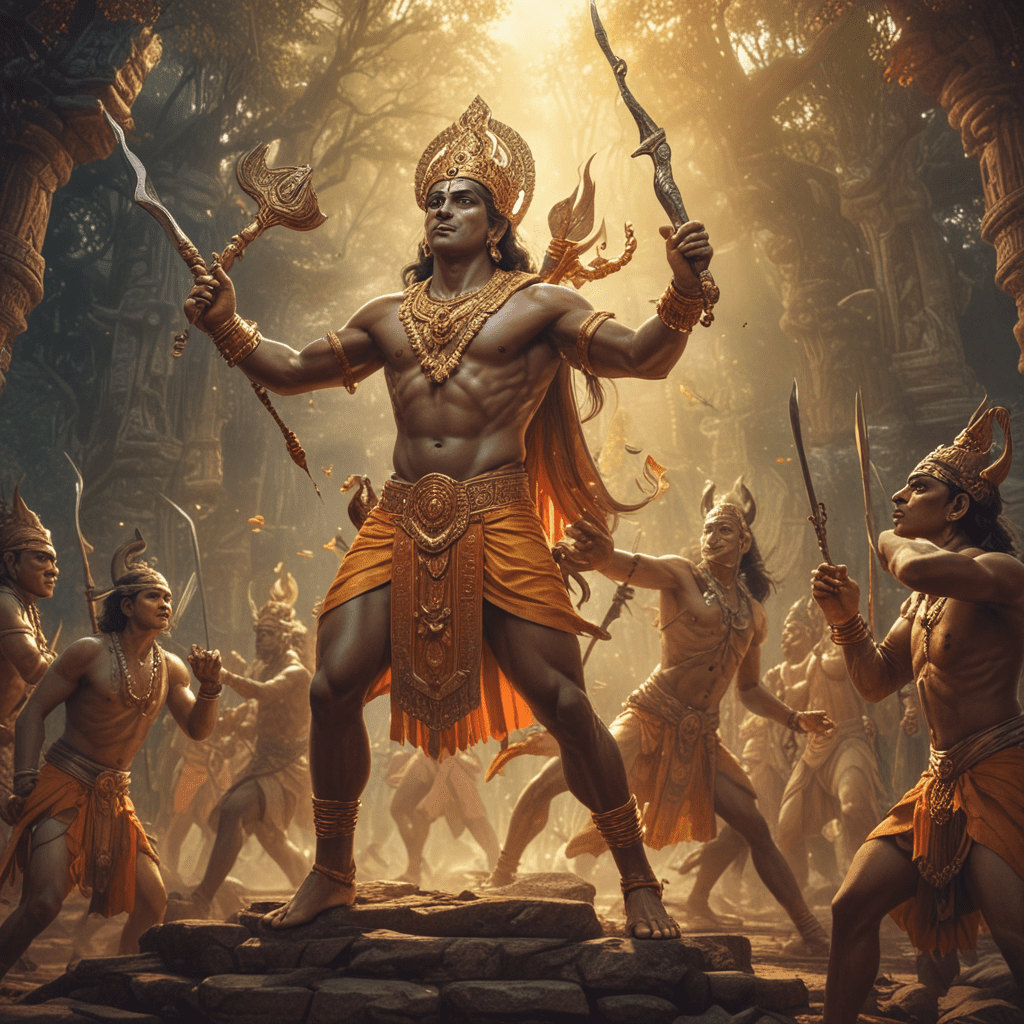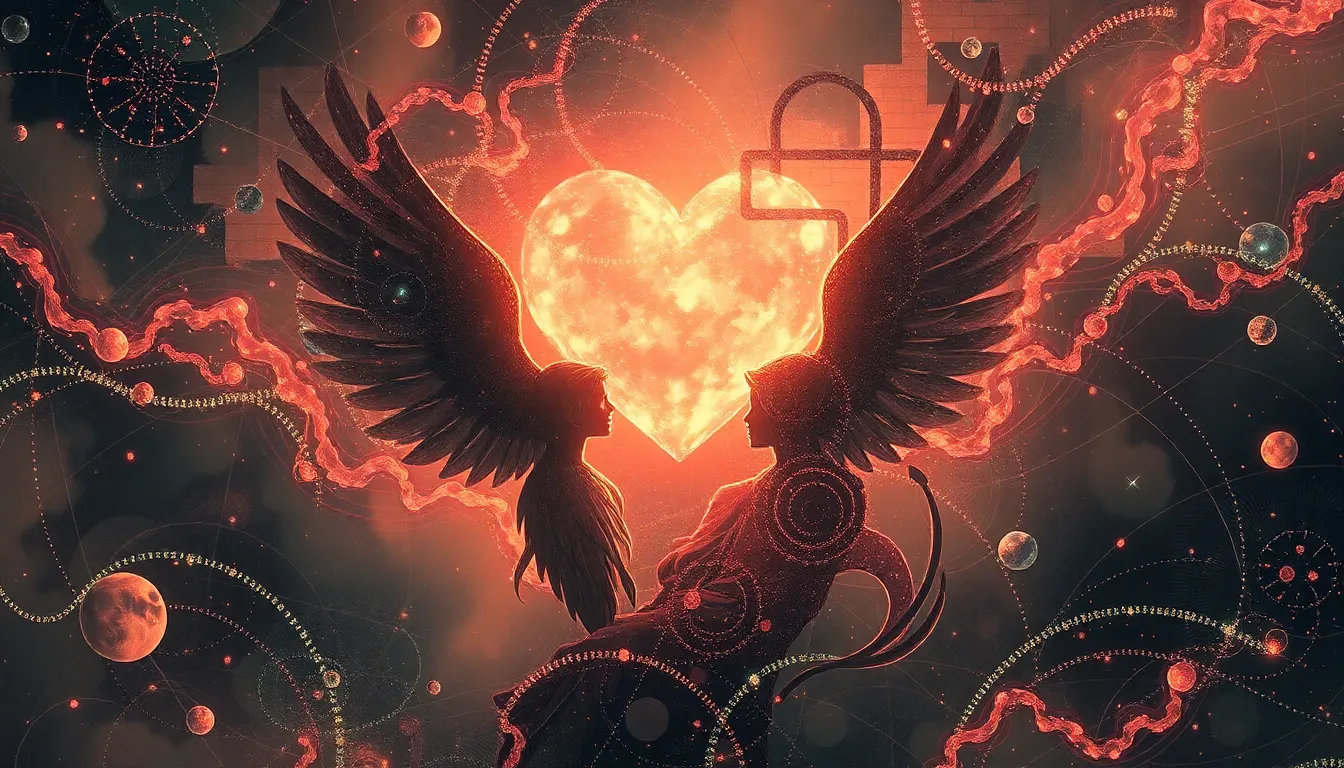The Mythical Dawn: The Stories Behind Our Existence
I. Introduction: The Quest for Understanding Existence
Throughout human history, myths have played a pivotal role in shaping cultures and societies. They serve as vessels of wisdom, encapsulating the beliefs, values, and experiences of people across generations. Myths help us navigate the complexities of existence by providing narratives that explain our origins, purpose, and place in the universe. This article explores the concept of a “mythical dawn,” a term that signifies the beginning of existence as depicted in various myths around the world. Our aim is to delve into these stories and examine how they shape our understanding of existence.
II. Defining Myth: More Than Just Stories
Myths are often viewed merely as fanciful tales of gods and heroes, but they encompass much more than that. They are foundational narratives that help cultures articulate their worldviews.
A. The role of myths in different cultures
In various cultures, myths serve to:
- Explain natural phenomena
- Preserve historical events
- Establish moral codes and social norms
B. Types of myths: creation, origin, and eschatological
Myths can be categorized into several types:
- Creation Myths: Narratives explaining how the universe and humanity came into existence.
- Origin Myths: Stories detailing the beginnings of specific cultures, peoples, or practices.
- Eschatological Myths: Accounts of the end of the world or humanity’s ultimate fate.
C. How myths reflect human values and beliefs
Myths are mirrors reflecting the values, fears, and aspirations of the societies from which they originate. They provide insight into what different cultures prioritize and the moral lessons they wish to impart.
III. The Creation Myths: Diverse Narratives from Around the World
Creation myths are among the most profound stories we can explore, as they lay the groundwork for how various cultures understand existence.
A. Overview of major creation myths
Some of the most well-known creation myths include:
- Genesis: The Judeo-Christian account of creation in the Book of Genesis, describing how God created the world in six days.
- The Enuma Elish: A Babylonian creation myth that depicts the rise of the god Marduk and the formation of the world from chaos.
- The Popol Vuh: The creation story of the Maya, detailing the creation of humanity from maize and the adventures of the Hero Twins.
B. Comparative analysis of themes and motifs in creation stories
Despite the cultural differences, many creation myths share common themes, such as:
- The struggle between chaos and order
- The duality of creation and destruction
- The importance of sacrifice for existence
C. How these myths inform our understanding of existence and humanity’s place in the universe
These creation narratives offer insights into humanity’s relationship with the divine, nature, and each other. They often emphasize the interconnectedness of all beings and the responsibility of humans to uphold harmony in the universe.
IV. The Mythical Dawn in Ancient Civilizations
The concept of dawn has significant symbolic meaning in various mythologies, often representing hope, renewal, and the promise of a new beginning.
A. The significance of dawn in mythology
Dawn is often personified in myths as a deity or divine being, such as:
- Inanna: The Sumerian goddess of love and war, associated with the morning star.
- Horus: The Egyptian god of the sky, symbolizing the dawning sun.
B. Stories from ancient Egypt and Mesopotamia
In ancient Egypt, the daily journey of the sun was seen as a battle against darkness, with the dawn symbolizing victory over chaos. In Mesopotamian myths, the dawn was often linked with creation, heralding the emergence of life from the primordial waters.
C. The role of dawn in shaping agricultural and societal practices
The dawn was crucial for ancient agricultural societies, marking the time for planting and harvesting. Myths surrounding dawn often reinforced the importance of these practices, intertwining them with spiritual beliefs.
V. Philosophical Interpretations of Existence
The intersection of myth and philosophy offers a rich ground for exploring existential questions.
A. How myths intersect with philosophical inquiries about existence
Myths often delve into existential themes, such as the nature of being, purpose, and the human condition. Philosophers have drawn upon these narratives to explore fundamental questions about life.
B. Notable philosophers and their interpretations of mythical stories
Philosophers like Friedrich Nietzsche and Carl Jung have used myths to illustrate their theories on existence and human psychology. Nietzsche, for instance, saw the myth of eternal recurrence as a way to confront the meaning of life, while Jung emphasized the archetypal significance of myths in understanding the collective unconscious.
C. The impact of mythology on existentialist thought
Existentialist thinkers such as Jean-Paul Sartre and Simone de Beauvoir have also engaged with myth, using it to explore freedom, choice, and the absurdity of existence.
VI. The Role of Myth in Modern Society
In contemporary culture, ancient myths continue to resonate and are often reinterpreted.
A. How contemporary culture reinterprets ancient myths
Modern storytelling mediums, such as films and literature, frequently draw upon mythological themes, repackaging them for today’s audience. This reinterpretation often reflects contemporary values and concerns.
B. Myths in literature, film, and popular media
Examples include:
- The use of Greek mythology in movies like “Clash of the Titans” and “Percy Jackson.”
- Literary works that reflect mythological themes, such as “The Hero with a Thousand Faces” by Joseph Campbell.
C. The relevance of these myths in addressing modern existential questions
Myths continue to provide a framework for exploring existential dilemmas, offering narratives that help individuals find meaning in an increasingly complex world.
VII. The Intersection of Science and Myth
The relationship between scientific explanations and mythical narratives is a fascinating area of exploration.
A. The relationship between scientific explanations and mythical narratives
While science seeks empirical evidence to explain existence, myths serve a different purpose—providing meaning and context to human life.
B. How myths can complement scientific understanding of existence
Mythical narratives can enrich our understanding of scientific concepts by offering insights into the human experience behind scientific discoveries.
C. Examples of mythological themes in scientific discourse
For instance, the Big Bang theory can be seen as a modern creation myth, providing a narrative for the origin of the universe, much like ancient creation myths.
VIII. The Psychological Impact of Myths on Human Behavior
Myths have a profound psychological impact, shaping individual identities and community bonds.
A. The connection between myth, identity, and community
Myths often serve as a point of connection for communities, fostering shared identities and cultural continuity.
B. How myths shape individual and collective psychology
They influence how individuals perceive themselves and their place within the broader tapestry of existence, helping to navigate personal and collective crises.
C. The therapeutic value of myth in understanding personal existence
Mythology can also play a therapeutic role, allowing individuals to explore their struggles through the lens of mythic narratives, providing solace and understanding.
IX. Future Perspectives: Myths in an Evolving World
As society evolves, so too do the myths that shape our understanding of existence. New narratives emerge, reflecting contemporary issues and technological advancements.
In a world increasingly defined by rapid change, the challenge will be to find ways to integrate ancient wisdom with modern realities, ensuring that myths continue to provide meaning and guidance in our lives.



